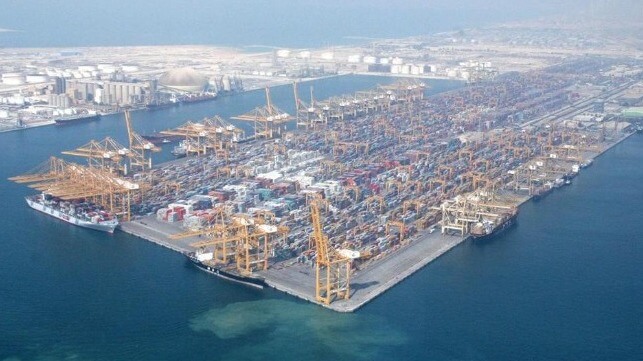Shipping Has the Potential to Help The Arabian Peninsula Diversify

Historically, the Arabian Peninsula has played a pivotal role in maritime trade development. It now acts as a bridge that connects South Asia’s manufacturing hubs to consumers in Africa and Europe. It provides much of the fuel, and since the start of the oil boom in the 20th century, the region has created immense economic wealth from its hydrocarbon reserves.
Although oil revenues are the primary source of finance for the economies of states in Arabian Peninsula, diversification programs have gained a sense of urgency. With Gulf countries concerned about the sustainability of oil revenues, they are eyeing new sectors, including the maritime industry.
The colonial era was instrumental in transforming the jagged shores of Arabia into a maritime node. In the nineteenth century, the British used the Gulf region as a command post and anchorage on the route to India. In 1960s, it would see monumental transformations with feverish exploitation of oil in UAE and Oman. New large ports, harbors and oil terminals had to be constructed to facilitate unearthing of petroleum in the Arabian Peninsula.
But with the projected decline in oil profits in the decades ahead, how are Gulf countries untangling their mega ports from dependence on oil and bunkering markets?
First, Gulf companies lead the new generation of global terminal operators. A good example is the meteoric rise of the Dubai-based DP World. Starting out as a local port operator in 1972, it has grown into the third-largest terminal operator, with a presence in 69 countries worldwide.
DP World - in partnership with the UK-based British International Investment group - last year announced an investment platform valued at more than $1 billion in a move to tighten its grip in Africa’s port sector. These investments could see DP World assume a deciding role in shipping activities to and from the world’s frontier markets.
Red Sea Gateway Terminal (RSGT) is another Gulf corporation assertively seeking wider influence in terminal operations globally. With its flagship terminal operation based at Jeddah Port in Saudi Arabia, RSGT is looking to invest in ports in Africa and Middle East as the current terminal concessions expire by 2030.
Last year, RSGT got a major backing from the Saudi Arabian Public Investment Fund (PIF) through sale of a 20 percent stake. The wealth fund is leading a strategy to turn the kingdom into a transport and logistics hub, and supporting local companies looking to export products. Thus, RSGT will be instrumental in providing the necessary technical capacity needed for the exports.
DP World’s Jebel Ali port is globally renowned as a logistics hub, but the rise of Abu Dhabi, Salalah (Oman), Jeddah and Dammam Port (Saudi Arabia) is a testament of the Peninsula’s pivot to container shipping.

that matters most
Get the latest maritime news delivered to your inbox daily.
Quite striking is the stellar performance of Khalifa port in Abu Dhabi, inaugurated in 2012. Leveraging partnerships container shipping heavyweights COSCO, CMA CGM and MSC as the main terminal tenants, Khalifa port is growing from strength-to-strength year on year.
According to data by Lloyd’s list, Khalifa Port was one of the few ports globally to achieve double-digit volume growth in 2020, rising nearly 16 percent to 3.2 million TEU. As such, the port has almost doubled its total TEU in the space of two years.
The opinions expressed herein are the author's and not necessarily those of The Maritime Executive.
